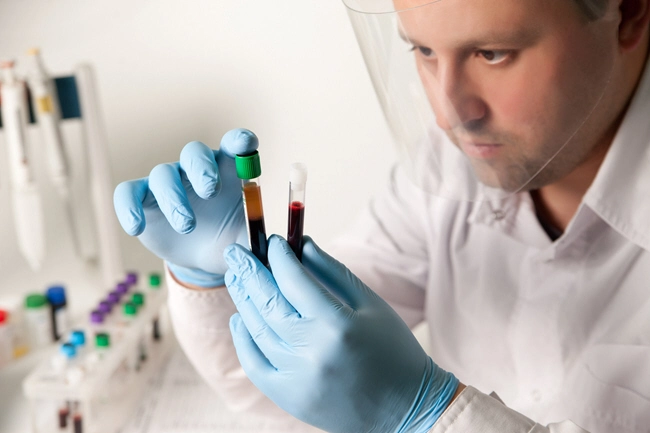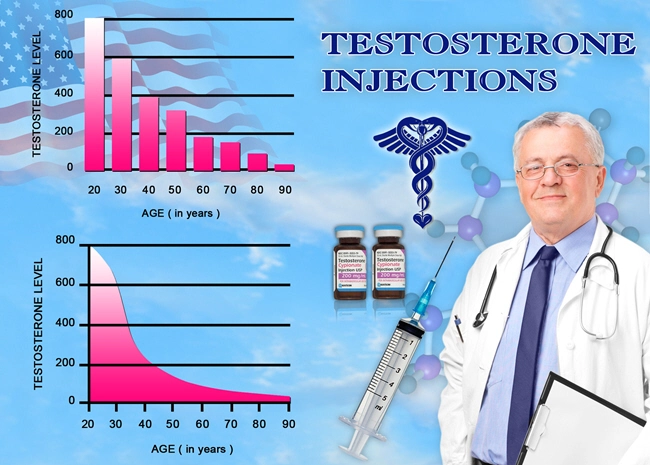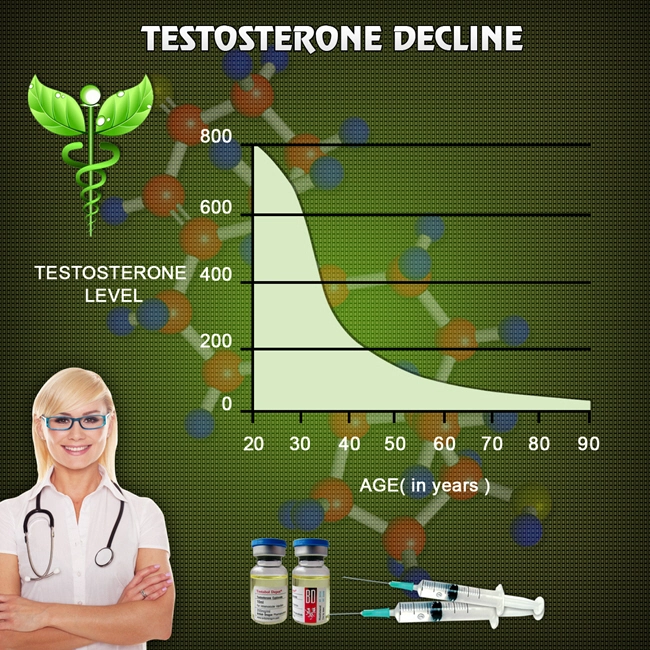
Testosterone and Food: What you eat can boost your testosterone levels!
 For all of the men reading this, here’s a question: How many of you would like to have low testosterone (“Low-T”)? The only sane answer is NO ONE! There are many good reasons to be concerned about low testosterone. Here are just a few of those reasons:
For all of the men reading this, here’s a question: How many of you would like to have low testosterone (“Low-T”)? The only sane answer is NO ONE! There are many good reasons to be concerned about low testosterone. Here are just a few of those reasons:
- Loss of strength
- Shrinking muscle mass
- Rickety bones that may eventually lead to osteoporosis
- Increasing joint soreness and discomfort
- Brain fog
- Depression
- Weight gain and accumulation of fat
- Metabolic syndrome
- Soaring blood sugar that may lead to type II diabetes
- Diminishing libido
- Erectile dysfunction
- And more debilitating symptoms that no man wants to experience
If you have landed on this page it’s a good chance that you are interested in testosterone, and are seriously considering Testosterone Replacement Therapy 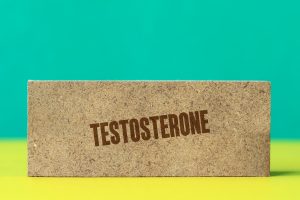 (TRT). GREAT! You are exactly where you need to be.
(TRT). GREAT! You are exactly where you need to be.
At our clinics, one of our main specialties is TRT. We have spent decades devoted to staying on the cutting edge of the more efficient and safe methods of testosterone restoration. We design TRT treatment regimens individually by considering all aspects of the client: family history, age, current condition, and goals.
And we don’t stop with just TRT.
Our programs are comprehensive and include nutritional guidance, physical fitness, nutritional supplements, stress control, the importance of hydration, sleep, and toxin avoidance. Nothing is left to chance.
And that leads us to this question? Are there specific foods that can boost testosterone? Conversely, are there foods that can diminish testosterone and therefore should be avoided? The answer to both of these questions is a loud, resounding “YES.”
Let’s take a look at some recent research studies and see what the researchers have to say.
Starting at around age 40, men’s testosterone levels start to decline by about 10% per decade. But that metric is not set in stone. Some older men manage to keep their testosterone levels similar to or even greater than younger men. Gaining weight and an expanding mid-section is a huge problem (pun intended)  according to Dr. Shalender Bhasin, professor of medicine at Harvard and the director of the Research Program in Men’s Health: Aging and Metabolism at Brigham and Women’s Hospital.
according to Dr. Shalender Bhasin, professor of medicine at Harvard and the director of the Research Program in Men’s Health: Aging and Metabolism at Brigham and Women’s Hospital.
A recent study that consisted of 206 volunteers concluded that men on low-fat diets had testosterone levels that were an average of nearly 60 points lower than men on high-fat diets. Men on a vegetarian diet had the lowest levels of testosterone compared to those who consumed a high-fat, meat-based diet.
Another study tested two styles of diets in 25 healthy men between the ages of 18 and 30. Calorie intake was similar, but one group fed on a high-fat, low-carb diet, consisting of 75 per cent of calories from fats, 5 per cent from carbohydrates, and 20 per cent from protein.
The other group of men consumed a standard low-fat diet, consisting of 25 per cent of calories from fats, 55 per cent from carbohydrates, and 20 per cent from protein. After 10 weeks of devouring the high-fat diet, testosterone skyrocketed by an incredible average of 118 points. The men on the low-fat diet experienced a drop in testosterone levels of approximately 36 points
Similarly, a study of approximately 3,000 men determined that those who reported eating a low-fat diet had slightly lower testosterone levels — about 30 points lower — than men who ate higher-fat diets.
But none of the men had low testosterone. “The moral is that healthy men who are of normal weight with no significant comorbidities are unlikely to benefit from restrictive diets,” said Dr. Richard J. Fantus, one of the study’s authors and a urologist at NorthShore University HealthSystem in Evanston, Ill.
restrictive diets,” said Dr. Richard J. Fantus, one of the study’s authors and a urologist at NorthShore University HealthSystem in Evanston, Ill.
Diet studies are complicated, because changing one component of the diet, such as fat intake, alters so many other things, such as the number of carbohydrates, protein, and micronutrients consumed.
It’s unclear which component of the diet may have prompted the hormonal changes, Dr. Bhasin said. Furthermore, testosterone levels may also be shaped by sleep patterns, jet lag, when they eat, and how often they eat.
Dr. Faysal Yafi, chief of the division of Men’s Health and Reconstructive Urology at the University of California, Irvine, says his patients who eat healthily tend to lose weight, become more active, and cut back on alcohol. All of these steps can boost testosterone. He suspects any connection between diet and testosterone may be the result of a healthier lifestyle.
All research agrees that long-term alcohol abuse causes testosterone to drop like a lead balloon by damaging cells in the testicles, which produce testosterone, and the liver, which controls testosterone metabolism. But pouring down copious amounts of alcohol occasionally does not appear to have much of an impact — it lowers testoster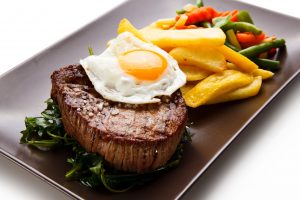 one for only about 30 minutes, according to one study, after which levels bounce back to baseline.
one for only about 30 minutes, according to one study, after which levels bounce back to baseline.
Overweight men who have low levels of testosterone can increase levels by cutting calories and losing weight, no matter what eating plan – Ketogenic, Atkins, Zone, Vegan, Weight-Watchers, South-Beach, Raw Food, DASH – they follow. Conversely, Dr. Bhasin said he is noticing an increasing number of men at his clinic who are suffering from low libido and fatigue. Strict calorie restriction, exercising intensely, and being chronically stressed can all cause testosterone levels to plummet and are likely to blame, he said.
So where do we go from here?
While not overwhelming, the overall evidence does conclude that what you eat can affect your testosterone levels. Let’s take a look at a specific list of powerhouse nutrients that can give you a fighting chance against “old-man aging” and the loss of precious testosterone.
- Zinc. Zinc is effective at blocking aromatase, which impedes the conversion of testosterone to estrogen. Food sources of zinc are tuna, oysters, crabs, shrimp, lobster, chicken, beef, pork, oatmeal, dairy products, legumes, mushrooms, nuts, and seeds. Also, consider a zinc supplement.
- Magnesium. This miracle mineral is critical for sleep and recovery, and is, therefore, an indirect way to boost testosterone. Foods rich in magnesium include leafy greens, lentils, beans, grains, seeds, dark chocolate, bananas, amaranth, and nuts.
- Vitamin D. It’s challenging to obtain adequate amounts of vitamin D from food alone since most foods contain low amounts of this vitamin. Therefore, strongly consider supplementation.
- Complex Carbohydrates. Complex carbs deliver an energy boost that propels us to get off the couch and get moving and exercising, which raises testosterone. Sweet potatoes, brown rice, oats quinoa, legumes, and other beans are good sources of the type of carbs that help restore testosterone.
- Vitamin K. Vitamin K acts as a precursor to testosterone by stimulating the activity of testosterone-synthesizing enzymes. Vitamin K2 MK-4 has been shown to increase testosterone production by activating protein kinase. Foods that are high in vitamin K are leafy greens, broccoli, Brussels sprouts, chicken, and avocados. If you are supplementing, look for the K-2 version since it is more bioavailable than K-1.
- High-Quality Protein. Bodybuilders have long been aware of the link between protein, testosterone, and muscle. Eggs, organic chicken, grass-fed beef, wild salmon, cottage cheese, protein shakes, nuts, seeds, beans, lentils are all good protein sources.
- Ashwagandha. Ashwagandha is an adaptogenic herb that helps to strengthen the immune system and control stress. Look for Ashwagandha in capsules or powder form.
- Ginger
- Garlic
- Cholesterol. At first glance, it seems improbable that cholesterol can have an effect on testosterone. But many foods that contain cholesterol are testosterone boosters. Beef, eggs, cheese, and shrimp help with Low-T, but don’t overdo it with these foods.
What you don’t do, drink, or eat is also crucial
As important as the above-mentioned foods and substances are for adequate testosterone production, it is also paramount to keep in mind that several foods, drinks, substances, or actions you take may cause your testosterone levels to plummet. Here are a few of the “no-no’s” to avoid:
- Excess alcohol consumption
- Sugar
- Processed foods
- Fast foods
- Smoking
- Weight-gain
- Uncontrolled stress
- Chronic sleep difficulties
- Liver and kidney problems which result in an accumulation of toxins
None of these above-mentioned testosterone killers on their own can cause your testosterone levels to crater. But quite often when one of these conditions is a problem, many other conditions are also lurking in the background.
 Hopefully, you are now aware of the fact that testosterone replacement is a holistic approach. Our TRT treatments alone can reverse the downward spiral of vanishing testosterone. And when combined with healthy lifestyle adjustments the results are even more spectacular!
Hopefully, you are now aware of the fact that testosterone replacement is a holistic approach. Our TRT treatments alone can reverse the downward spiral of vanishing testosterone. And when combined with healthy lifestyle adjustments the results are even more spectacular!
We have the total program that has been developed with one goal in mind: make your testosterone levels blast off!
Contact us for a FREE, no-obligation discussion about the benefits of Testosterone Replacement Therapy.
Contact Us Today For A Free Consultation
Dear Patient,
Once you have completing the above contact form, for security purposes and confirmation, please confirm your information by calling us.
Please call now: 1-800-380-5339.
Welcoming You To Our Clinic, Professor Tom Henderson.

- Our HGH Clinic And Web Site Privacy Policy [Last Updated On: May 23rd, 2019] [Originally Added On: December 14th, 2017]
- Idaho HGH Clinics [Last Updated On: August 26th, 2025] [Originally Added On: March 19th, 2018]
- Injectable HGH Prescriptions In Cheyenne, Wyoming [Last Updated On: April 15th, 2025] [Originally Added On: March 3rd, 2019]
- Injectable HGH Prescriptions In Milwaukee, Wisconsin [Last Updated On: April 19th, 2025] [Originally Added On: March 3rd, 2019]
- Injectable HGH Prescriptions In Madison, Wisconsin [Last Updated On: April 1st, 2025] [Originally Added On: March 3rd, 2019]
- Injectable HGH Prescriptions In Green Bay, Wisconsin [Last Updated On: March 22nd, 2025] [Originally Added On: March 3rd, 2019]
- Injectable HGH Prescriptions In Charleston, West Virginia [Last Updated On: May 17th, 2025] [Originally Added On: March 3rd, 2019]
- Injectable HGH Prescriptions In Vancouver, Washington [Last Updated On: February 18th, 2025] [Originally Added On: March 3rd, 2019]
- Injectable HGH Prescriptions In Tacoma, Washington [Last Updated On: January 16th, 2025] [Originally Added On: March 3rd, 2019]
- Injectable HGH Prescriptions In Spokane, Washington [Last Updated On: April 16th, 2025] [Originally Added On: March 3rd, 2019]
- Injectable HGH Prescriptions In Seattle, Washington [Last Updated On: May 30th, 2025] [Originally Added On: March 3rd, 2019]
- Injectable HGH Prescriptions In Washington D.C [Last Updated On: January 15th, 2025] [Originally Added On: March 3rd, 2019]
- Injectable HGH Prescriptions In Bellevue, Washington [Last Updated On: June 1st, 2025] [Originally Added On: March 3rd, 2019]
- Injectable HGH Prescriptions In Virginia Beach, Virginia [Last Updated On: January 18th, 2025] [Originally Added On: March 3rd, 2019]
- Injectable HGH Prescriptions In Richmond, Virginia [Last Updated On: January 25th, 2025] [Originally Added On: March 3rd, 2019]
- Injectable HGH Prescriptions In Portsmouth, Virginia [Last Updated On: April 10th, 2025] [Originally Added On: March 3rd, 2019]
- Injectable HGH Prescriptions In Norfolk, Virginia [Last Updated On: May 28th, 2025] [Originally Added On: March 3rd, 2019]
- Injectable HGH Prescriptions In Newport News, Virginia [Last Updated On: April 12th, 2025] [Originally Added On: March 3rd, 2019]
- Injectable HGH Prescriptions In Hampton, Virginia [Last Updated On: January 11th, 2025] [Originally Added On: March 3rd, 2019]
- Injectable HGH Prescriptions In Chesapeake, Virginia [Last Updated On: January 9th, 2025] [Originally Added On: March 3rd, 2019]
- Injectable HGH Prescriptions In Arlington, Virginia [Last Updated On: February 6th, 2025] [Originally Added On: March 3rd, 2019]
- Injectable HGH Prescriptions In Alexandria, Virginia [Last Updated On: May 24th, 2025] [Originally Added On: March 3rd, 2019]
- Injectable HGH Prescriptions In Montpelier, Vermont [Last Updated On: April 29th, 2025] [Originally Added On: March 3rd, 2019]
- Injectable HGH Prescriptions In West Valley City, Utah [Last Updated On: April 16th, 2025] [Originally Added On: March 3rd, 2019]
- Injectable HGH Prescriptions In West Jordan, Utah [Last Updated On: March 15th, 2025] [Originally Added On: March 3rd, 2019]
- Injectable HGH Prescriptions In Salt Lake City, Utah [Last Updated On: January 28th, 2025] [Originally Added On: March 3rd, 2019]
- Injectable HGH Prescriptions In Provo, Utah [Last Updated On: May 12th, 2025] [Originally Added On: March 3rd, 2019]
- Injectable HGH Prescriptions In Wichita Falls, Texas [Last Updated On: April 1st, 2025] [Originally Added On: March 3rd, 2019]
- Injectable HGH Prescriptions In Waco, Texas [Last Updated On: March 15th, 2025] [Originally Added On: March 3rd, 2019]
- Injectable HGH Prescriptions In San Antonio, Texas [Last Updated On: February 4th, 2025] [Originally Added On: March 3rd, 2019]
- Injectable HGH Prescriptions In Round Rock, Texas [Last Updated On: December 29th, 2024] [Originally Added On: March 3rd, 2019]
- Injectable HGH Prescriptions In Richardson, Texas [Last Updated On: March 10th, 2025] [Originally Added On: March 3rd, 2019]
- Injectable HGH Prescriptions In Plano, Texas [Last Updated On: February 6th, 2025] [Originally Added On: March 3rd, 2019]
- Injectable HGH Prescriptions In Pasadena, Texas [Last Updated On: March 31st, 2025] [Originally Added On: March 3rd, 2019]
- Injectable HGH Prescriptions In Midland, Texas [Last Updated On: April 23rd, 2025] [Originally Added On: March 3rd, 2019]
- Injectable HGH Prescriptions In Mesquite, Texas [Last Updated On: April 9th, 2025] [Originally Added On: March 3rd, 2019]
- Injectable HGH Prescriptions In McKinney, Texas [Last Updated On: May 19th, 2025] [Originally Added On: March 3rd, 2019]
- Injectable HGH Prescriptions In McAllen, Texas [Last Updated On: April 3rd, 2025] [Originally Added On: March 3rd, 2019]
- Injectable HGH Prescriptions In Lubbock, Texas [Last Updated On: May 10th, 2025] [Originally Added On: March 3rd, 2019]
- Injectable HGH Prescriptions In Lewisville, Texas [Last Updated On: January 29th, 2025] [Originally Added On: March 3rd, 2019]
- Injectable HGH Prescriptions In Laredo, Texas [Last Updated On: April 26th, 2025] [Originally Added On: March 3rd, 2019]
- Injectable HGH Prescriptions In Killeen, Texas [Last Updated On: March 4th, 2025] [Originally Added On: March 3rd, 2019]
- Injectable HGH Prescriptions In Irving, Texas [Last Updated On: February 9th, 2025] [Originally Added On: March 3rd, 2019]
- Injectable HGH Prescriptions In Houston, Texas [Last Updated On: April 6th, 2025] [Originally Added On: March 3rd, 2019]
- Injectable HGH Prescriptions In Grand Prairie, Texas [Last Updated On: January 17th, 2025] [Originally Added On: March 3rd, 2019]
- Injectable HGH Prescriptions In Garland, Texas [Last Updated On: February 14th, 2025] [Originally Added On: March 3rd, 2019]
- Injectable HGH Prescriptions In Fort Worth, Texas [Last Updated On: April 21st, 2025] [Originally Added On: March 3rd, 2019]
- Injectable HGH Prescriptions In El Paso, Texas [Last Updated On: February 28th, 2025] [Originally Added On: March 3rd, 2019]
- Injectable HGH Prescriptions In Denton, Texas [Last Updated On: May 6th, 2025] [Originally Added On: March 3rd, 2019]
- Injectable HGH Prescriptions In Dallas, Texas [Last Updated On: December 31st, 2024] [Originally Added On: March 3rd, 2019]
- Injectable HGH Prescriptions In Corpus Christi, Texas [Last Updated On: June 7th, 2025] [Originally Added On: March 3rd, 2019]
- Injectable HGH Prescriptions In Carrollton, Texas [Last Updated On: June 3rd, 2025] [Originally Added On: March 3rd, 2019]
- Injectable HGH Prescriptions In Brownsville, Texas [Last Updated On: February 4th, 2025] [Originally Added On: March 3rd, 2019]
- Injectable HGH Prescriptions In Beaumont, Texas [Last Updated On: April 4th, 2025] [Originally Added On: March 3rd, 2019]
- Injectable HGH Prescriptions In Austin, Texas [Last Updated On: June 5th, 2025] [Originally Added On: March 3rd, 2019]
- Injectable HGH Prescriptions In Arlington, Texas [Last Updated On: January 13th, 2025] [Originally Added On: March 3rd, 2019]
- Injectable HGH Prescriptions In Amarillo, Texas [Last Updated On: March 18th, 2025] [Originally Added On: March 3rd, 2019]
- Injectable HGH Prescriptions In Abilene, Texas [Last Updated On: January 5th, 2025] [Originally Added On: March 3rd, 2019]
- Injectable HGH Prescriptions In Nashville, Tennessee [Last Updated On: March 2nd, 2025] [Originally Added On: March 3rd, 2019]
- Injectable HGH Prescriptions In Murfreesboro, Tennessee [Last Updated On: March 8th, 2025] [Originally Added On: March 3rd, 2019]
- Injectable HGH Prescriptions In Memphis, Tennessee [Last Updated On: March 28th, 2025] [Originally Added On: March 3rd, 2019]
- Injectable HGH Prescriptions In Knoxville, Tennessee [Last Updated On: March 25th, 2025] [Originally Added On: March 3rd, 2019]
- Injectable HGH Prescriptions In Clarksville, Tennessee [Last Updated On: February 2nd, 2025] [Originally Added On: March 3rd, 2019]
- Injectable HGH Prescriptions In Chattanooga, Tennessee [Last Updated On: January 29th, 2025] [Originally Added On: March 3rd, 2019]
- Injectable HGH Prescriptions In Sioux Falls, South Dakota [Last Updated On: December 25th, 2024] [Originally Added On: March 3rd, 2019]
- Injectable HGH Prescriptions In Columbia, South Carolina [Last Updated On: February 2nd, 2025] [Originally Added On: March 3rd, 2019]
- Injectable HGH Prescriptions In Charleston, South Carolina [Last Updated On: January 31st, 2025] [Originally Added On: March 3rd, 2019]
- Injectable HGH Prescriptions In Providence, Rhode Island [Last Updated On: January 30th, 2025] [Originally Added On: March 3rd, 2019]
- Injectable HGH Prescriptions In Pittsburgh, Pennsylvania [Last Updated On: May 18th, 2025] [Originally Added On: March 3rd, 2019]
- Injectable HGH Prescriptions In Erie, Pennsylvania [Last Updated On: January 4th, 2025] [Originally Added On: March 3rd, 2019]
- Injectable HGH Prescriptions In Allentown, Pennsylvania [Last Updated On: May 6th, 2025] [Originally Added On: March 3rd, 2019]
- Injectable HGH Prescriptions In Salem, Oregon [Last Updated On: January 31st, 2025] [Originally Added On: March 3rd, 2019]
- Injectable HGH Prescriptions In Portland, Oregon [Last Updated On: February 1st, 2025] [Originally Added On: March 3rd, 2019]
- Injectable HGH Prescriptions In Gresham, Oregon [Last Updated On: January 30th, 2025] [Originally Added On: March 3rd, 2019]
- Injectable HGH Prescriptions In Eugene, Oregon [Last Updated On: January 27th, 2025] [Originally Added On: March 3rd, 2019]
- Injectable HGH Prescriptions In Tulsa, Oklahoma [Last Updated On: May 26th, 2025] [Originally Added On: March 3rd, 2019]
- Injectable HGH Prescriptions In Oklahoma City, Oklahoma [Last Updated On: February 22nd, 2025] [Originally Added On: March 3rd, 2019]
- Injectable HGH Prescriptions In Norman, Oklahoma [Last Updated On: April 28th, 2025] [Originally Added On: March 3rd, 2019]
- Injectable HGH Prescriptions In Toledo, Ohio [Last Updated On: April 14th, 2025] [Originally Added On: March 3rd, 2019]
- Injectable HGH Prescriptions In Dayton, Ohio [Last Updated On: April 11th, 2025] [Originally Added On: March 3rd, 2019]
